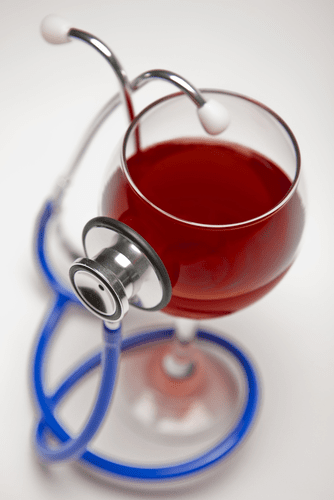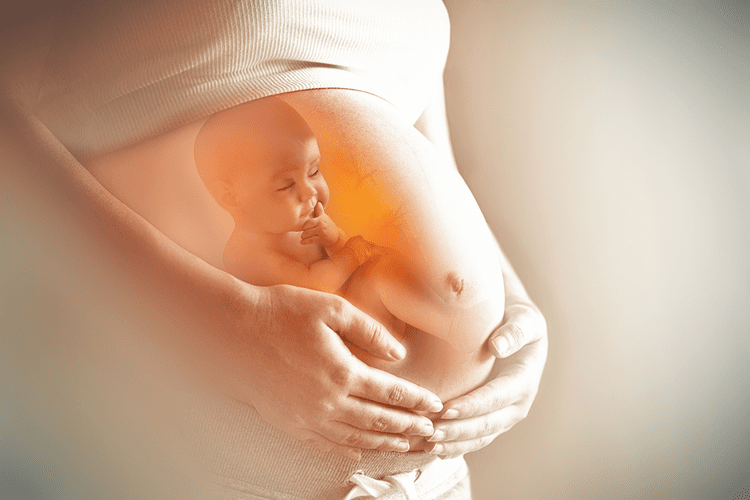Contents

In people with diabetes, the pancreas does not produce sufficient insulin or the body does not respond appropriately to the insulin . Alcohol consumption by diabetics can worsen blood sugar control in those patients. For example, long-term alcohol use in well-nourished diabetics can result in excessive blood sugar levels. Conversely, long-term alcohol ingestion in diabetics who are not adequately nourished can lead to dangerously low blood sugar levels. Heavy drinking, particularly in diabetics, also can cause the accumulation of certain acids in the blood that may result in severe health consequences.

Generally, the glycogen supply is depleted after 1 or 2 days of fasting. Thus, a person who has been drinking alcohol and not eating for 1 or more days has exhausted his or her glycogen supply. Drinking alcohol can lower blood sugar levels to the point of low blood sugar , causing serious symptoms. Keep careful track of your blood sugar levels when drinking alcohol. This is important because most diabetes medicines, including insulin, also lower blood sugar levels. If blood sugar levels are too low, or if your stomach is empty, don’t drink alcohol.
Peripheral Neuropathy
Hypoglycemia induced by alcohol ingestion is a well known clinical problem in diabetic patients. However, the mechanisms underlying this phenomenon have largely remained elusive. People with diabetes should be particularly cautious when it comes to drinking alcohol because alcohol can make some of the complications of diabetes worse.
It breaks down toxins, such as how does social drinking become problematic as we age, into components that the kidneys then excrete. It’s unfortunate to be an addiction counselor who still meets the criteria of a dry drunk. After cutting excess sugar from your diet, you’ll almost certainly feel a major difference in your emotional stability within a few weeks. It’s hard to crave sweets when you’ve just eaten a grass fed steak. Unlike Twizzlers, fresh meats and eggs and cheeses contain good saturated fats that will help you restore feel-good chemicals in your brain. Talk to your provider about how much alcohol is safe for you.
Understanding alcohol-induced hypoglycemia is the first step in overcoming both conditions. People with diabetes whose blood sugar level is too low to treat with the 15–15 rule safely may require glucagon injections. I have a cheat meal once per week, and these days I prefer fried chicken to ice cream. I limit my sugar intake to about one or two servings of fruit each day. As it turns out, quitting alcohol is not quite enough to recover fully from alcoholism.

Alanine is converted to pyruvate in the liver by alanine aminotransferase, but the elevated levels of NADH ensure that pyruvate will be immediately converted to lactate by lactate dehydrogenase. Thus, ethanol consumption rapidly increases the blood lactate concentration, while decreasing the level of glucose. Ethanol also can redistribute pancreatic microcirculation to enhance late-phase insulin secretion. This can cause hypoglycemia directly and inhibit the release and activation of counter-regulatory corticotropin, cortisol, and growth hormone that normally counteract hypoglycemia, which increases the risk for reactive hypoglycemia . Drinking alcohol while eating, or right before eating, can cause blood sugar levels to rise. Watch your blood sugar closely before and after drinking alcohol.
Consequences of Alcohol Use in Diabetics
Please seek professional care if you believe you may have a condition. If your blood sugar is out of whack and your stress hormones are elevated all day long, your efforts at mental reconditioning and spiritual transformation will be difficult uphill battles, if not outright impossible. Your mind cannot thrive without a healthy brain, which is made out of matter. Your physical health, beginning with nutrition, is the groundwork for your mental improvement. To be clear, I’m not arguing that psychological considerations are unimportant in alcohol recovery.
- Alcohol consumption can exacerbate the diabetes-related lipid abnormalities, because numerous studies have shown that heavy drinking can alter lipid levels even in nondiabetics.
- In a study by Marks and Teale, less than one percent of people with alcohol intoxication who presented to an American emergency department were hypoglycemic .
- Such measurements might have assisted understanding of the mechanisms of the effects of glucose and alcohol consumption on blood glucose fluctuations.
- In the fasting state, as a first line of defense against hypoglycemia, glycogen is broken down into its constituent glucose molecules, which are secreted by the liver into the blood to maintain normal or near-normal blood sugar levels.
Low blood sugar may cause alcohol cravings, but drinking more alcohol forces the liver and pancreas to produce more insulin. Insulin removes sugar from the blood, worsening hypoglycemia. Alcohol consumption not only induces hypoglycemia and accompanying symptoms; the reverse is also true.
Conversely, glucagon primarily serves to increase blood sugar levels. Accordingly, it promotes gluconeogenesis and the breakdown of glycogen into glucose. Your liver is an integral part of regulating your blood glucose levels.
Maybe their doctors cautioned them that drinking and diabetes don’t mix. Perhaps some have health conditions that are incompatible with alcohol. Or maybe they’re just concerned about all those calories—and carbs.
However, substantial information on the association of alcohol and cardiovascular disease exists from population studies that included an unknown percentage of diabetics. Those findings suggest that alcohol consumption, particularly moderate consumption, may have a protective effect against cardiovascular disease. Combining already low blood sugar levels with alcohol-impaired liver function will put you at risk for dangerously low blood sugar levels, known as hypoglycemia. The symptoms of hypoglycemia and being drunk are similar—confusion, anxiety, and feeling faint. Doing so may mean that you do not get the proper help if your blood sugar levels drop too low. Wearing a medical emergency bracelet can be very helpful to alert the people around you that you have diabetes.
Alcohol’s Effects on Blood Sugar Levels of Diabetics
We genotyped the alcohol dehydrogenase 1B and aldehyde dehydrogenase 2 loci in saliva samples using real‐time polymerase chain reaction (552C Regular Flocked Swab, Nylon Tip; NSD Co., Ltd., Tokyo, Japan). The participants then completed a questionnaire regarding their drinking habits . When we verified that the potential participants were biologically capable of consuming alcohol, using these tests, they were enrolled in the study. Table S2 | Changes in measured values during the 20‐g alcohol tolerance test in the subgroup of the participants with both active alcohol dehydrogenase 1B and aldehyde dehydrogenase 2 genotypes. Avogaro A, Duner E, Marescotti C, Ferrara D, Del Prato S, Nosadin R, Tiengo A. Metabolic effects of moderate alcohol intake with meals in insulin-dependent diabetics controlled by artificial endocrine pancreas and in normal subjects. Chlorpropamide is a medication used to treat type 2 diabetes by increasing pancreatic insulin secretion.
The relationships between alcohol and hypoglycemia might be more complicated than you think. When the brain does not receive enough glucose, it can become damaged, which may lead to chronic memory and learning impairment. The exact reasoning behind this is unknown, but trends show that when individuals with alcohol use disorder discontinue consuming alcohol, they often turn to high-calorie foods to provide enjoyment. Many of these symptoms are also signs of being drunk, making it challenging to tell if someone is hypoglycemic or intoxicated.
For the first h of fasting, hepatic glycogenolysis provides most of the glucose from glycogen stores. After that, lipolysis and protein breakdown provide fatty acid for energy, and glycerol and amino acids for gluconeogenesis. Therefore, assuming that a person is eating adequately at regular intervals, hypoglycemia can be avoided through various back-up mechanisms. Some people who take oral diabetes medicines should talk with their provider to see if it is safe to drink alcohol.
In consideration of participant safety against acute alcohol poisoning, the protocol was designed to administer alcohol in separate amounts, rather than all at once. That effect has been observed in both type 1 and type 2 diabetics as well as in nondiabetics . Hypoglycemia can have serious, even life-threatening, consequences, because adequate blood sugar levels are needed to ensure brain functioning. In people with either type 1 or type 2 diabetes, single episodes of alcohol consumption (i.e., acute alcohol consumption) generally do not lead to clinically significant changes in blood sugar levels. In fact, some studies have indicated that isolated episodes of drinking with a meal may have a beneficial effect by slightly lowering blood sugar levels that tend to rise too high in diabetics .
Drink alcohol with a meal or with a carbohydrate-rich snack to maintain normal blood sugar levels. Cardiovascular disease continues to be one of the leading causes of death among all Americans and is the leading cause of death in people with type 2 diabetes . The relationship of alcohol consumption to cardiovascular disease in diabetic people has not been well evaluated.

Drinking alcohol can weaken your body’s ability to recover from low blood sugar episodes. It may also decrease your ability to see and respond to symptoms of low blood sugar. People with type 1 diabetes are at particular risk of low blood sugar if they binge-drink. Do not drink alcohol on an empty stomach or when your blood glucose is low. Any time you drink alcohol, there is a risk of low blood sugar.
It would seem counterintuitive at first to think that alcohol causes hypoglycemia. The reason is that alcohol contains a lot of sugar, so it would seem like it would cause a spike in blood sugar, rather than a decline. Medical News Today has strict sourcing guidelines and draws only from peer-reviewed studies, academic research institutions, and medical journals and associations. We link primary sources — including studies, scientific references, and statistics — within each article and also list them in the resources section at the bottom of our articles. You can learn more about how we ensure our content is accurate and current by reading our editorial policy. Alcohol and hypoglycemia are an unsafe combination, especially in people with diabetes and in those who drink frequently.
Shelmet JJ, Reichard GA, Skutches CL, Hoeldtke RD, Owen OE, Boden G. Ethanol causes acute inhibition of carbohydrate, fat, and protein oxidation and insulin resistance. Kerr D, Macdonald A, Heller SR, Tattersall RB. Alcohol causes hypoglycaemic unawareness in healthy volunteers and patients with Type 1 (insulin-dependent) diabetes. Neuropathy, in addition to other factors (e.g., vascular disease in the penis or altered hormone levels), also may contribute to impotence, which is a common and troublesome complication in diabetic men. The nerves that control erection are part of the autonomic nervous system, which controls numerous vital processes that occur without conscious efforts (e.g., breathing and the contractions of the gut necessary for proper digestion).
Dr. Rebeca Eriksen is the Nutritional Consultant for Fit Recovery. She has a PhD in Nutritional Genetics from Imperial College London, and over ten years of clinical experience designing custom nutritional repair regimens for patients recovering from alcohol addiction. In addition to her work at the exclusive Executive Health clinic in Marbella, Spain, she helps to keep Fit Recovery up to date with emerging research. You may have heard about people who gave up alcohol, only to mysteriously become dry drunks.